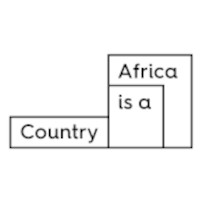Shai Hills, Ghana © Seth Avusuglo, Library Manager of the Library of Africa and the African Diaspora.

IN SUMMARY
Concept of Return and Reconnection: For many in the diaspora, “return” and “reconnection” mean going back to their roots and connecting with their ancestral homelands.
Historical and Modern Practices: These connections have been made for centuries. For example, the Tabom people returned to Ghana from Brazil in the 1800s, and today’s diasporans continue to reconnect with their origins.
Notable Examples:
- Maya Angelou: Lived in Ghana, learned the local language, and explored the shared experiences between Africans and African-Americans.
- Maryse Condé: Wrote about her time in West Africa, comparing her experiences as a Caribbean-born Black woman to those she met.
Challenges and Romanticisation: Sometimes, these returns are overly idealized, ignoring past and present power imbalances while trying to connect with a lost history.
The Year of Return (2019): Ghana invited descendants of enslaved Africans to return, marking 400 years since the first enslaved people arrived in America. While it was a powerful cultural event, it was also driven by economic interests.
Economic Impact: The Year of Return reportedly brought $1.9 billion to Ghana’s economy, mainly benefiting businesses, government, and tourism, though full details are unclear.
Cultural and Economic Boost: The event spurred more tourism, business investments, and cultural activities, benefiting certain groups in Ghana.
Black Star Line Festival (2022): Created by Chance the Rapper and Vic Mensa, this festival in Accra celebrates the unity and freedom of African peoples worldwide, inspired by Marcus Garvey’s historical shipping company.
These points show the challenges, intentions, and impacts of “return” for those in the diaspora.






